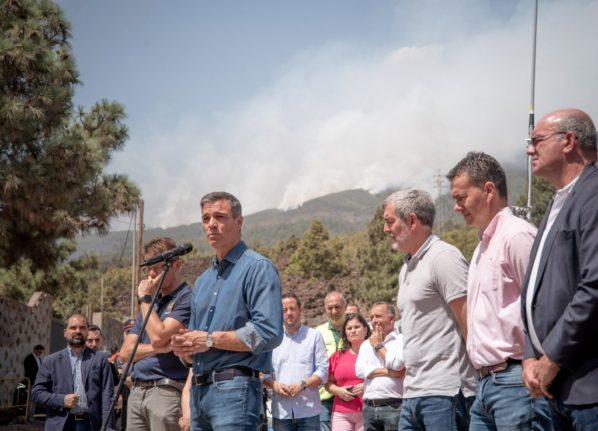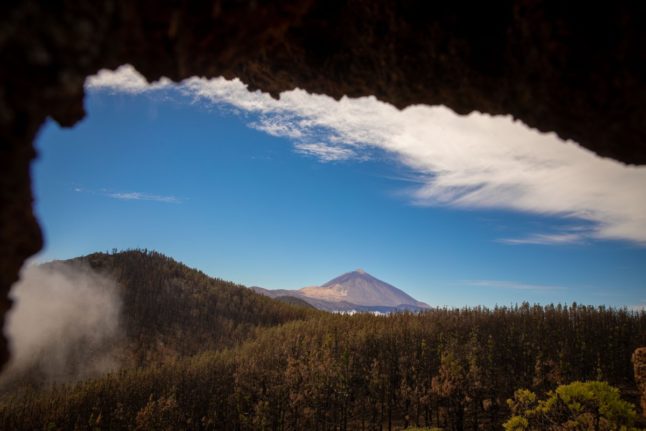The blaze broke out late Tuesday in a mountainous northeastern area, quickly morphing into the Canary Islands’ biggest-ever wildfire.
“We hope the weather will help us to declare the fire as stabilised in the coming hours, coming days. May the weather be on our side,” Sánchez told reporters during a visit to the island.
So far, the fire, which now has a perimeter of around 90 kilometres (55 miles), has burned through nearly 41,000 hectares (28,700 acres) of land, which is about 6.5 percent of Tenerife’s overall surface area, the regional government said.
It has forced more than 12,000 people to flee their homes, it added.
Sánchez said his government would classify the areas affected by the blaze as disaster zones, a move which will trigger emergency subsidies and other support measures.
“The government of Spain is going to get as involved in the work of reconstruction as it is now with the task of civil protection,” he said in the village of Arafo which has been affected by the blaze.
READ ALSO: Are Spain’s wildfires a risk to people’s health?
Some 600 firefighters and soldiers backed by 22 water-dropping aircraft were battling the wildfire, which is affecting 12 municipalities.
Local authorities said cooler temperatures and weaker overnight winds had helped firefighters make gains in their battle against the blaze.
“The worst is behind us,” the Canary Islands’ regional leader Fernando Clavijo said on Monday morning during an interview with Spanish public radio.
‘Endangered lives’
The fire appears to have been started deliberately, he said, adding he hoped Spain’s Guardia Civil police force will be able to arrest the “raving lunatics” responsible.
“Not only do they put in danger the natural heritage of a marvellous island, they also endangered the lives of hundreds of people,” he added.
Contacted by AFP, the local Guardia Civil did not confirm the theory that the fire was caused intentionally.
“The investigation is continuing, it is far too early to know. There is a high probability that it was provoked, but we cannot rule out any line of investigation for the moment,” a Guardia Civil spokeswoman said.
The blaze broke out after the archipelago suffered a heatwave that left many areas tinder dry.
The Canary Islands typically experience spring-like temperatures all year but the mercury soared to hit 40C in some parts.
The seven-island archipelago is located off the northwest coast of Africa and southwest of mainland Spain. At their nearest point, the islands are 100 kilometres (60 miles) from Morocco.
As global temperatures rise due to climate change, scientists have warned that heat waves will become more frequent and intense.
Last year, Spain suffered more than 500 blazes that destroyed more than 300,000 hectares, making it the worst-hit country in Europe, according to the European Forest Fire Information System (EFFIS).
So far this year, it has had 340 fires, which have ravaged almost 76,000 hectares, EFFIS figures show.



 Please whitelist us to continue reading.
Please whitelist us to continue reading.
Member comments